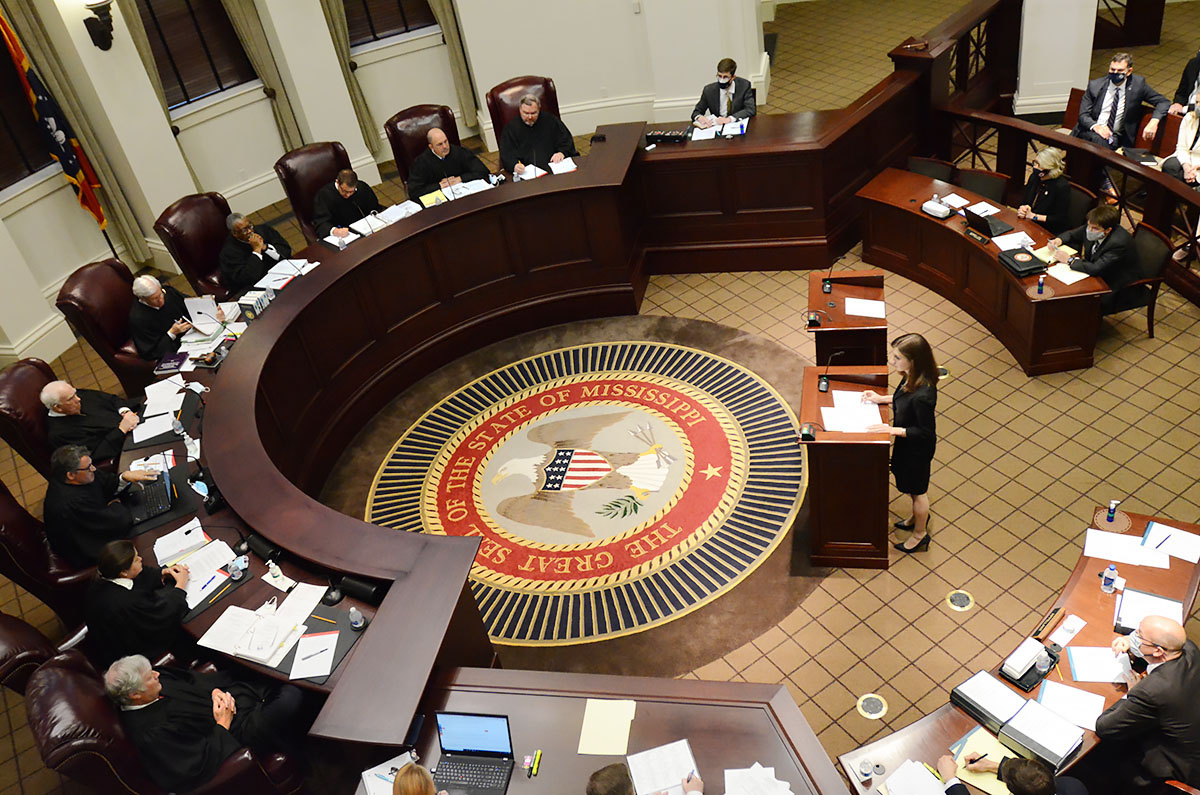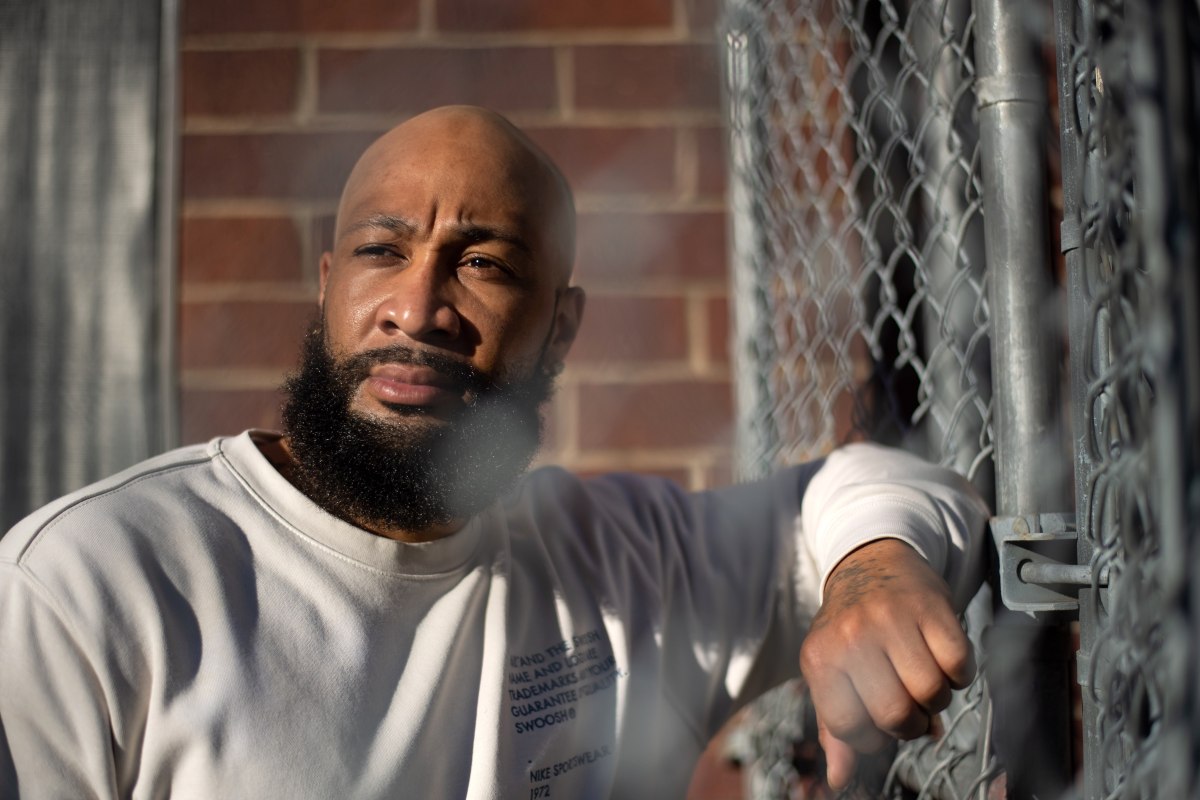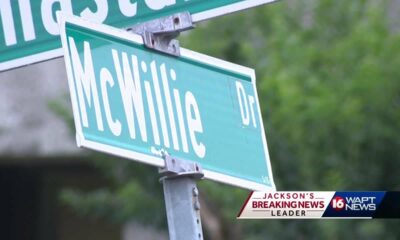Mississippi Today
Some are jailed in Mississippi for months without a lawyer. The state Supreme Court just barred that.

Some are jailed in Mississippi for months without a lawyer. The state Supreme Court just barred that.
This article was produced for ProPublica's Local Reporting Network in partnership with theNortheast Mississippi Daily Journaland co-published withThe Marshall Project.Sign up for Dispatchesto get stories like this one as soon as they are published.
Poor defendants in Mississippi are routinely jailed for months, and sometimes even years, without being appointed an attorney due to the state's notoriously dysfunctional public defender system. The Mississippi Supreme Court now says this practice must end.
The state's highest court approved a mandate on Thursday thatcriminal defendants who can't afford their own attorney must always have onebefore an indictment.
Across the state, defendants facing felony charges lose their appointed attorneys after their initial court appearances, where a judge rules whether they can be released from jail before trial. In many counties, defendants aren't appointed new lawyers until they're indicted, a process that can take years. Justice system reformers call this gap the “dead zone.”
In the Mississippi Delta's Coahoma County, Duane Lakespent almost two yearsbehind bars without bond and without an attorney while waiting to be indicted on triple murder charges following a brutal killing. After he was indicted, he spent four more years in jail before he was acquitted at trial in November 2021.
There are others like him, trapped in a system that leaves defendants who can't afford their own attorneys with no advocate to ask a judge to reduce their bonds or dismiss their cases as they wait in jail to be indicted. Meanwhile, prosecutors face no deadlines to bring cases before a grand jury.
“There is no other state where a defendant can be sitting in jail without an attorney for months or years while charging decisions are made,” said David Carroll, executive director of the Sixth Amendment Center, which studies how states provide indigent criminal defense.
Several years ago, at the request of a task force appointed by the Mississippi Legislature, the Sixth Amendment Center evaluated the state's indigent defense services. In ahighly critical report, the group proposed a number of reforms, including stronger state oversight of how local governments provide public defenders.
The Legislature shelved the report and the task force's recommendations, even as criminal justice reformersidentified defendantslike Lake who sat in jail for years facing charges that didn't hold up.
But in February, a three-member committee of the Mississippi Supreme Courtrequested public commentson a proposed change to the state's rules of criminal procedure. It would require that defendants who can't afford their own attorneys be represented the entire time they're awaiting indictment.
The Supreme Court approved therule changeThursday. It takes effect in July.
“This landmark change in Mississippi's public defense system marks the end of the dead zone and is a huge step toward a criminal legal system that doesn't unfairly punish people who are unable to afford an attorney,” said Cliff Johnson, who as director of the MacArthur Justice Center's Mississippi office has long argued for such a change.
But researchers like Pam Metzger, director of theDeason Criminal Justice Reform Centerat Southern Methodist University in Texas, say simply requiring the assignment of an attorney will do little to improve legal representation for poor defendants.
“It's giving you a warm body and briefcase,” she said of the rule. “But it doesn't deal with what in my view is the real problem,” which is that people spend too long in jail before they're indicted.
Current and former public defenders have also cautioned that Mississippi's decentralized justice system will make it hard to implement the Supreme Court's new rule.
The amended rule prevents an appointed attorney representing an indigent client at any stage of criminal proceedings from withdrawing until another attorney is appointed. Right now, this provision applies only after an indictment.
It wasproposedin May by Russ Latino, who was then executive director of the conservative think tank Empower Mississippi. His request sat for nearly 10 months until the Supreme Court's criminal procedure committee invited feedback and set a March 15 deadline for responses.
A raft of ideologically diverse legal activists, attorneys and policy advocates responded byurging the courtto adopt the amendment.
“No just or useful purpose is served by allowing such incarceration without benefit of legal counsel,” wrote Brad Pigott, who served in the 1990s as one of Mississippi's U.S. attorneys. “Certainly no legitimate law enforcement purpose is thereby served.”
‘We've Got People Languishing in Jail'
Across Mississippi, some people without attorneys have spent months or longer in jail waiting for an indictment.
After prisoners in eastern Mississippi's Lauderdale County jail filed complaints, a federal judge ordered the county in 2016 toprovide him with a list of all people held in jailwithout indictments and without lawyers.
“Something needs to be put in place to make sure someone doesn't fall through the cracks in this way,” said U.S. District Judge Carlton Reeves, according to an Associated Press story.
On the state's Gulf Coast, an autistic teenager was arrested in 2018 on burglary charges andspent more than 270 days in jailbecause his family didn't post a $10,000 bond. The charges were ultimately dropped after a grand jury declined to indict him.
The Wayne County Sheriff's Department, in southeast Mississippi's Pine Belt region, reported that 24 of 31 prisoners in the jail as of the end of September had not been indicted, including 13 who had been in jail 90 days or longer. Only six of these 13 had lawyers as of September, according to the report.
One person without a lawyer had been jailed for about six months awaiting indictment on a drug possession charge, according to the report.
Of those 13, only one is still in jail and hasn't been indicted as of this week, said Kassie Coleman, the district attorney for Wayne County.
Gregory J. Weber, a part-time public defender in Madison County, said he sees delays with many cases, particularly drug charges.
“We've got people languishing in jail and nothing is being done,” Weber said in an interview before the Supreme Court acted. For defendants with a private attorney, “something usually is done about it. There is a bond reduction, or they get into drug court and they plead. So we've definitely got a problem with people falling through the cracks.”
Lawyers Aren't Only Factor in Long Jail Stays
Even as Carroll, of the Sixth Amendment Center, called the change an important first step, he cautioned that because indigent defense is handled by local court systems, “the state still has no oversight function to make sure that the court rule gets implemented.”
The Sixth Amendment Center has found that in counties without full-time public defender's offices — which is most of them — the payment structure discourages public defenders from doing extensive work on behalf of their clients.
In most counties, attorneys are paid a flat fee, no matter how many indigent clients they are assigned. That incentivizes attorneys to spend little time on indigent clients so they can take on those who can pay, the center argued.
Nor does the new rule spell out how defendants will be transferred between appointed counsel working for different court systems and different local government bodies. “I think it needs to be delineated much more clearly about when the handoff occurs and who is responsible for that person,” Weber said.
But better payment structures and effective administrative procedures won't change a key factor in long jail terms: Prosecutors have unlimited time to indict and prosecute someone after they've been arrested.
“We're really focused in Mississippi on the charging time,” said Metzger, who has studied this phase of criminal proceedings in courts across the country.
She said it would be more effective to institute deadlines for indictment, mandatory bail hearings and early disclosure of evidence.
Even when lawyers are appointed early on, such as in Yazoo County, defendants still spend months or years in jail.
Defense attorneys in the county have filed almost 100 motions since 2019 seeking to reduce bonds or dismiss charges. Many of those defendants had spent a year or more in jail while waiting to be indicted.
John Paul Thornton was arrested by Yazoo City police on Dec. 3, 2018, and charged with two counts of commercial burglary involving a local dollar store. Over a year later, Thornton was still in jail and had not been indicted.
Belinda Stevens, an attorney who works part time as a public defender in Yazoo County, filed a motion on Thornton's behalf in January 2020, seeking a dismissal of the case and claiming that his constitutional right to a speedy trial had been denied. Stevens didn't respond to requests for comment.
A month later, prosecutors dropped the case. A judge signed an order, and Thornton walked free the next day after 436 days in jail.
This article first appeared on Mississippi Today and is republished here under a Creative Commons license.
Mississippi Today
On this day in 1983


May 6, 1983

A federal judge sentenced Raymond Bledsoe to life for beating Black jazz saxophonist Steven Harvey to death in a Kansas City park because of his race.
A Missouri jury had acquitted Bledsoe of murder, and afterward, he reportedly bragged to his girlfriend about killing a “n—–” and getting away with it.
Harvey's family members, Alvin Sykes and the Steve Harvey Justice Campaign convinced federal authorities to pursue the case. At the time, the conviction was reportedly the fourth under the Civil Rights Act of 1968.
In 2013, federal corrections authorities denied parole to Bledsoe. To date, he remains the longest serving inmate convicted under that Civil Rights Act.
Sykes later helped bring about both the Justice Department's reopening of the Emmett Till case and the passage of the Emmett Till Unsolved Civil Rights Crime Act.
Sykes died in 2021, and his New York Times obituary read, “Though he never took a bar exam, Mr. Sykes was a brilliant legal and legislative operator whose admirers included City Council members, politicians and U.S. attorneys general from both parties. … He led a monk's life in the name of social justice. He rarely held a job, wore second hand clothing and lacked a permanent address for long stretches of time, staying with friends instead and living off donations and, later, speaker fees. He never learned to drive and so walked everywhere, most often to the reference section of the library in Kansas City, Missouri, where he did his research, or to a booth at a restaurant that he used as an informal office, his papers surrounded by cups of coffee and stubbed-out cigarettes.”
This article first appeared on Mississippi Today and is republished here under a Creative Commons license.
Mississippi Today
Podcast: How the 2024 Medicaid expansion debate died

Mississippi Today's Adam Ganucheau, Bobby Harrison, Geoff Pender, and Taylor Vance discuss the breakdown of Medicaid expansion negotiations in the Legislature.
This article first appeared on Mississippi Today and is republished here under a Creative Commons license.
Did you miss our previous article…
https://www.biloxinewsevents.com/?p=355689
Mississippi Today
On this day in 1917
May 5, 1917

Eugene Jacques Bullard became the first Black American combat pilot.
After the near lynching of his father and hearing that Great Britain lacked such racism, the 12-year-old Georgia native stowed away on a ship headed for Scotland. From there, he moved to Liverpool, England, where he handled odd jobs before becoming a boxer, traveling across Europe before he settled in Paris.
“It seems to me that the French democracy influenced the minds of both White and Black Americans there and helped us all to act like brothers as near as possible,” he said. “It convinced me, too, that God really did create all men equal, and it was easy to live that way.”
When World War I began, he was too young to fight for his adopted country, so he and other American expatriates joined the French Foreign Legion. Through a series of battles, he was wounded, and doctors believed he would never walk again.
No longer able to serve in the infantry, an American friend bet him $2,000 that he could not get into aviation. Taking on the challenge, he earned his “wings” and began fighting for the French Aéronautique Militaire.
He addressed racism with words on his plane, “All Blood Runs Red,” and he nicknamed himself, “The Black Swallow of Death.”
On his flights, he reportedly took along a Rhesus monkey named “Jimmy.” He tried to join the U.S. Air Service, only to be turned away because he was Black. He became one of France's most decorated war heroes, earning the French Legion of Honor.
After the war he bought a Paris nightclub, where Josephine Baker and Louis Armstrong performed and eventually helped French officials ferret out Nazi sympathizers. After World War II ended, he moved to Harlem, but his widespread fame never followed him back to the U.S.
In 1960, when French President Charles de Gaulle visited, he told government officials that he wanted to see his old friend, Bullard. No one in the government knew where Bullard was, and the FBI finally found him in an unexpected place — working as an elevator operator at the Rockefeller Center in New York City.
After de Gaulle's visit, he appeared on “The Today Show,” which was shot in the same building where he worked.
Upon his death from cancer in 1961, he was buried with honors in the French War Veterans' section of the Flushing Cemetery in Queens, New York.
A sculpture of Bullard can be viewed in the Smithsonian National Space and Air Museum in Washington, D.C., a statue of him can be found outside the Museum of Aviation, and an exhibit on him can be seen inside the National Museum of the U.S. Air Force, which posthumously gave him the rank of a second lieutenant. He is loosely portrayed in the 2006 film, “Flyboys.”
This article first appeared on Mississippi Today and is republished here under a Creative Commons license.
-
SuperTalk FM4 days ago
Driver’s education set to become mandatory in Mississippi as bill passes
-
SuperTalk FM7 days ago
Festival merger in Leland sets up one major event for Mississippi Delta
-
SuperTalk FM3 days ago
State approves $160M to expand Highway 7 to four lanes in Lafayette County
-
Mississippi Business5 days ago
Geartek expanding operations in Alcorn County
-
Mississippi News6 days ago
Two women accused of shoplifting across southeast captured in Mississippi
-
Mississippi News4 days ago
Altercation at Mississippi police department leads to officer-involved shooting
-
Mississippi News6 days ago
Starkville police make arrest in shooting at Dawg Wash South
-
Mississippi News16 hours ago
Winston Co. Sheriff’s Office investigates shooting at Dave’s Club









































